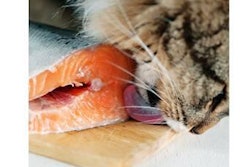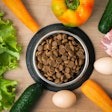This study examined the effects of food restriction during rabbit pregnancy on hormones and metabolites involved in energy homeostasis and metabolic programming.
Pregnant does were assigned to four groups: the control group was fed a standard ration while the others received a restricted amount of food (30% restriction) during early (0–9 days), mid (9–18 days) and late (19–28 days) pregnancy. The pregnancy induced a coordinated range of adaptations to fulfil energy requirements of both mother and fetus, such as hyperleptinaemia and hyperinsulinaemia, reduced insulin sensitivity, increased cortisol and non-esterified fatty acid. Food restriction altered leptin, insulin, T3, non-esterified fatty acids and glucose concentrations depending on the gestational phase in which it was applied.
Collectively, present data confirm that the endocrinology of pregnancy and the adaptive responses to energy deficit make the rabbit an ideal model for studying nutritional-related disorders and fetal programming of metabolic disease.
Source: L. Menchetti et al., 2014. Food restriction during pregnancy in rabbits: Effects on hormones and metabolites involved in energy homeostasis and metabolic programming. Res Vet Sci online, December 2014. doi:10.1016/j.rvsc.2014.11.017.

















